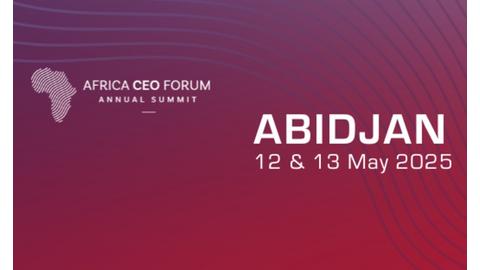Communication - Press
Navigating the Legal Mase: AI's Impact on Compliance, Liability, and Regulations

In the global landscape of Artificial Intelligence (AI) regulation, the European Union has taken a pioneering step with the enactment of the Artificial Intelligence Act (AIA), aiming to foster trustworthy AI while addressing associated risks comprehensively. Now, attention is turning to Africa, where the African Union (AU) is poised to unveil its Continental Strategy on AI, signalling a pivotal moment for the continent's approach to AI governance. As Africa prepares to navigate this evolving regulatory landscape, organisations can rely on the expertise of LEX Africa to guide businesses in aligning with AI regulations across diverse African jurisdictions. The blog below explores these interesting regulatory frameworks in more detail.
The EU AI Regulatory Framework
According to the European Commission, the Artificial Intelligence Act (AIA) is the first-ever comprehensive legal framework for AI worldwide. The aim of this Act is to foster trustworthy AI in Europe and beyond by ensuring that AI systems respect fundamental rights, safety, and ethical principles and by addressing the risks of very powerful and impactful AI models. These regulations address the risks of AI and position Europe to play a leading role globally. The AIA aims to provide AI developers and deployers with clear requirements and obligations regarding specific uses of AI. At the same time, the regulation seeks to reduce administrative and financial burdens for businesses, in particular small and medium-sized enterprises (SMEs). These regulations are characterised by a risk-based approach, broad territorial scope, and emphasis on ethical principles, which we expand on below.
Risk-Based Approach:
○ The AIA adopts a risk-based approach to AI regulation, categorising AI systems into three risk levels: unacceptable risk, high risk, and low risk.
○ Unacceptable risk AI systems, such as those used by governments for social scoring or manipulating individuals' behaviour in a way that could cause physical or psychological harm, are prohibited.
○ High-risk AI systems, including those used in critical sectors such as healthcare, transportation, and law enforcement, are subject to stringent regulatory requirements to ensure safety, transparency, and accountability.
○ Low-risk AI systems, such as chatbots and video games, are subject to minimal regulatory intervention, with a focus on voluntary codes of conduct and self-assessment.
Territorial Scope:
○ The AIA has a broad territorial scope, applying to both AI systems developed or deployed within the EU, and those provided from outside the EU but used within its jurisdiction.
○ This means that entities located outside the EU that offer AI products or services to EU citizens or operate within the EU market must comply with the AIA's requirements, particularly for high-risk AI systems.
○ The extraterritorial application of the AIA reflects the EU's commitment to ensuring a level playing field and protecting the rights and safety of EU citizens, regardless of where AI systems are developed or operated.
Regulatory Requirements:
For high-risk AI systems, the AIA imposes several regulatory requirements, including:
○ Data quality and governance: Ensuring the quality and reliability of training data and maintaining documentation on data sets used to train AI systems.
○ Transparency and explainability: Providing clear and understandable information about the AI system's capabilities, limitations, and decision-making processes.
○ Human oversight: Ensuring human supervision or intervention in the operation of AI systems, particularly in critical decision-making processes.
○ Accuracy and robustness: Implementing measures to ensure the accuracy, robustness, and resilience of AI systems against adversarial attacks or unintended biases.
○ Record-keeping and traceability: Maintaining records of AI system development, deployment, and performance to enable traceability and accountability.
The AIA aims to promote the responsible development and deployment of AI technologies while safeguarding the rights and safety of individuals within and beyond the EU. Now that we understand these regulations from an EU perspective, let’s unpack the African landscape for AI regulations.
The Regulatory Landscape in Africa
In 2023, the African Union (AU) embarked on the development of a Continental Strategy on AI (the AU AI Strategy) to address the pressing need for a cohesive approach to AI governance across the continent. Expected to be endorsed at the AU Summit in 2024, this strategy is poised to demonstrate the AU's leadership and articulate a distinctive African vision for AI governance.
One of the key areas the AU AI Strategy is likely to address is the limited use of African datasets and the overreliance on algorithms produced outside the continent. These practices often result in biased AI systems that fail to reflect African contexts and perpetuate historical and societal biases. To tackle this challenge, the strategy is expected to outline clear policies and strategies for promoting the use of African data in AI applications and addressing algorithmic biases. By emphasising the importance of leveraging African datasets and developing algorithms that are tailored to local contexts, the AU can ensure that AI technologies are more inclusive and representative of Africa's diverse cultures and values.
Furthermore, the AU AI Strategy is anticipated to underscore the importance of respecting and upholding African cultural practices and values in AI development and deployment. This includes principles such as ubuntu, which emphasises the importance of community over individuality. By incorporating these principles into its AI governance framework, the AU can promote the development of AI technologies that align with African values and contribute to social prosperity and inclusive development.
In addition to cultural considerations, the AU AI Strategy will likely prioritise human rights, compliance with international law, and inclusive social prosperity for African people and communities. This entails addressing concerns such as using AI in mass surveillance and ensuring that AI solutions benefit all segments of society.
Mechanisms for supporting member states in adopting and implementing the AU AI Strategy at the national level will be crucial to ensure its effective implementation. This may involve providing technical assistance, capacity building, and fostering policy coherence and coordination among member states.
Overall, the AU AI Strategy is poised to play a pivotal role in shaping Africa's approach to AI governance, promoting inclusivity, and driving sustainable development across the continent.
Preserving the Rights & Security of Moroccan Individuals
In the framework of AIA's desire to preserve the rights and security of individuals within and outside the EU, in Morocco, "the protection of the rights and security of individuals is a fundamental constitutional provision that cannot be violated" says Ghiyta Iraqi from LEX Africa member, I&I Law firm in Morocco. "It is applicable across all domains, particularly in the technological environment."
In the context of AI technologies, personal data is often used as raw material to train AI models, which can pose risks to privacy if this data is not properly protected. Moroccan Law 09-08 protects individuals with regard to the processing of personal data and regulates the collection and use of personal data . Any use of AI involving the collection or processing of personal data must comply with Law 09-08 which requires individual consent and transparency regarding the collection of their personal data, the legitimacy of the purpose of data collection, the protection of this data and individuals' rights over their data, including the right to access, rectify, and delete.
Iraqi confirms "even if there is no specific regulation regarding AI in Morocco, the provisions of Law 09-08 remain relevant in this regard".
LEX Africa's Role in Guiding Compliance
LEX Africa stands out as a trusted advisor for businesses navigating the intricate legal landscape of AI regulations in Africa. With a vast network of law firms across the continent, LEX Africa offers specialised expertise in understanding and complying with AI regulations tailored to diverse jurisdictions. Our legal teams possess in-depth knowledge of local laws, international best practices, and emerging regulatory trends, enabling them to provide comprehensive business guidance.
LEX Africa offers strategic counsel and practical solutions to ensure alignment with the evolving regulatory landscape. This includes assistance in interpreting and implementing AI regulations relevant to telecommunications, data protection, and cybersecurity. LEX Africa empowers businesses to navigate AI legal challenges effectively, minimise compliance risks, and seize opportunities for growth in the dynamic African market.
Conclusion
As the global landscape of AI regulation continues to evolve, both the European Union and the African Union are taking significant strides to shape the governance of AI technologies. The enactment of the Artificial Intelligence Act (AIA) in the EU and the development of the Continental Strategy on AI by the AU highlights the commitment to fostering trustworthy AI while addressing associated risks and AI legal challenges comprehensively. LEX Africa emerges as a crucial ally for businesses navigating the intricate legal terrain of AI regulations in Africa, offering specialised expertise and strategic counsel to ensure alignment with evolving regulatory frameworks. As Africa prepares to embrace AI regulatory frameworks, LEX Africa stands ready to guide businesses towards responsible and compliant AI adoption, fostering inclusivity and driving sustainable development across the continent.
LEX Africa members are leading lawyers in their jurisdictions. LEX Africa is an alliance of independent law firms across the African continent. Please visit www.lexafrica.com for further information and contact details.














